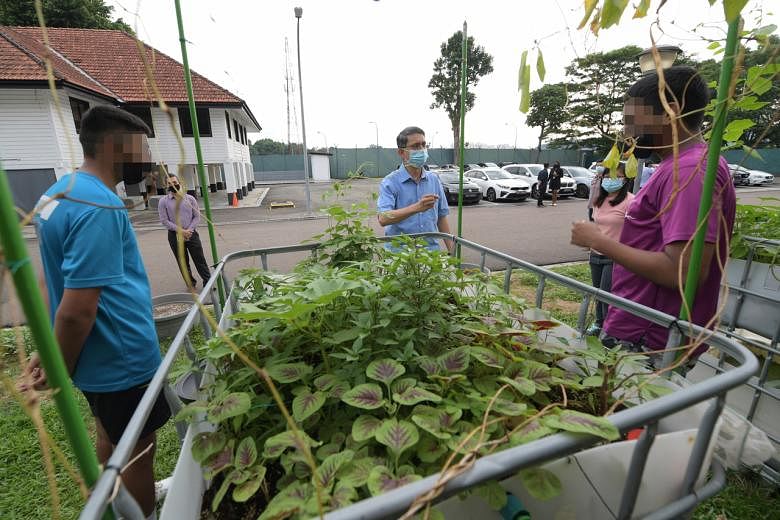SINGAPORE - With more than 60 per cent of new drug abusers caught last year under the age of 30, efforts to arrest the trend among young people will get a renewed focus from the authorities.
A key plank in this fight will be to rope in parents and enlist their cooperation, said Minister of State for Home Affairs and National Development Muhammad Faishal Ibrahim.
Speaking during a visit to the Community Rehabilitation Centre (CRC) in Jamaica Road in Sembawang on Thursday (Oct 29), Associate Professor Faishal added that the existing reintegration framework would be strengthened so former drug addicts do not relapse after rehabilitation.
Said Prof Faishal: "Young people have many years ahead of them and when they start (abusing drugs), it disrupts not just their life as an individual, but also their family and the community.
"I would like to urge parents to be concerned about drug abuse because if they are not, our children, including mine, may be susceptible to the syndicates. That is why it is important to continue bring the message of anti-drug use into homes."
He added that the Central Narcotics Bureau, Singapore Prison Service (SPS) as well as other government agencies will continue to expand their engagement with community partners "so that we will be able to give better rehabilitation services to our friends who may have made a bad choice, nevertheless we will need the support of the community".
He also called for more volunteers to be brought on board to improve the aftercare component of the existing rehabilitation framework.
"We need families, community partners to deepen the journey and make it easier for ex-offenders to reintegrate into their families and the society," he said.
CRC was set up in 2014 by SPS as a step-down arrangement for first-time youth drug abusers who have completed a short detention at the Drug Rehabilitation Centre. It currently houses 30 residents aged 16 to 21.
One of the residents at the centre, Haikal (name changed), 21, who joined CRC in May, said he started abusing drugs at 14 when he was introduced to it by friends.
Since joining the centre, he has attended counselling support and drug intervention group sessions, even securing a job in the food and beverage sector about two months ago.
The youngest of seven children, he said his family's support helped him stay strong through his withdrawal and rehabilitation period.
Said Haikal: "It was disappointing for my parents and siblings when they found out about my drug use. But my family visited me while I was here and motivated me to do better. When I leave, I want to sign on after national service and become a fireman. I have now made a promise to myself to not go back to drugs."
SPS partners the Youth Guidance Outreach Services, a youth-focused social service agency, to be the managing agent of CRC.
Noting the role of social service agencies and volunteers in building resilience against drug abuse in the society, Prof Faishal urged more groups to partner the Government in expanding prevention, rehabilitation and reintegration efforts.


